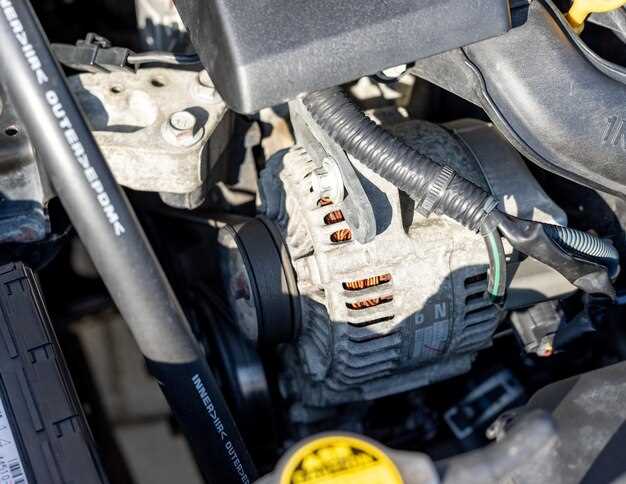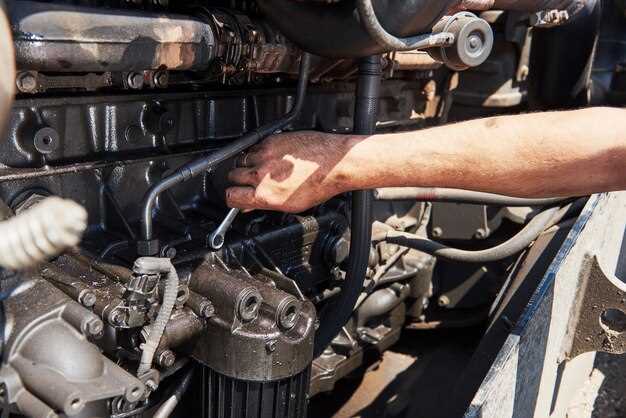
The alternator plays a crucial role in your vehicle’s electrical system, responsible for charging the battery and powering all electrical components while the engine is running. A malfunctioning alternator can lead to various issues, leaving you stranded or facing unexpected repairs. Understanding the signs indicating it’s time to replace your car alternator can save you time, money, and stress in the long run.
One of the most telling symptoms of a failing alternator is a dimming or flickering dashboard light. If you notice that your headlights are noticeably less bright or that warning lights on your dashboard are behaving erratically, it may indicate that the alternator is struggling to provide consistent charging. Additionally, a dead battery may be a clear sign that the alternator is not replenishing the power needed to keep your vehicle running smoothly.
Other signs include strange noises, such as grinding or whining sounds emanating from the engine area. These auditory cues can often signify a worn-out alternator bearing or a failing pulley. If you start experiencing any of these issues, it may be time to assess the condition of your alternator before it leads to more significant problems.
Decreased Battery Life and Frequent Jump Starts
One of the most telling signs that it may be time to replace your car alternator is a noticeable decrease in battery life. If you find yourself frequently needing to jump-start your vehicle, it indicates that the charging system is not functioning as it should. The alternator plays a crucial role in maintaining the charge of the battery, supplying it with electricity while the engine runs.
When the alternator begins to fail, it can lead to inadequate power being supplied to the battery. This results in a situation where the battery is not receiving enough charge, leading to its premature degradation. Consequently, you may notice that your battery holds less charge than before, requiring jump starts more often than usual.
If jump-starting becomes a regular part of your routine, it’s imperative to have your charging system inspected. Ignoring this issue can eventually leave you stranded, as a fully dead battery will not allow your vehicle to start at all. Therefore, assessing the health of the alternator is essential to ensuring the longevity and reliability of your battery.
Dim Lights and Electrical Component Malfunctions

One of the most noticeable signs that your car’s alternator may need replacing is the dimming of headlights and other electrical components. When the alternator begins to fail, it struggles to maintain the proper voltage required to power various electrical systems in your vehicle.
Dimmed headlights can indicate that the alternator is not effectively charging the battery, resulting in insufficient power being supplied. In addition to headlights, you may also observe that interior lights are less bright than usual or that dashboard indicators flicker. These symptoms suggest that the alternator is unable to provide consistent power.
Moreover, you might experience malfunctions in other electrical components, such as power windows, radio, or air conditioning. If these systems start to behave erratically or fail to operate entirely, it is often a direct result of the alternator’s inability to deliver adequate power.
Addressing these issues promptly is vital, as neglecting to replace a failing alternator can lead to complete electrical failure, leaving you stranded. Ensuring the alternator is functioning optimally is essential for overall vehicle performance and the longevity of the battery.
Unusual Noises and Burning Smell While Driving

If you notice unusual noises coming from your vehicle, it may indicate that your alternator is failing. A whining, grinding, or screeching sound can signify issues with the alternator bearings or other components within the charging system. Pay attention to these noises, especially if they become more pronounced when accelerating or under load.
Additionally, a burning smell can be a serious warning sign. This odor could result from overheating components within the alternator or an electrical failure, causing wires to burn. If the charging system is malfunctioning, it can lead to excessive heat production, which might endanger other electrical systems in your car.
Whenever you experience these symptoms–unusual noises accompanied by a burning smell–it’s crucial to investigate the issue promptly. Ignoring these signs can result in more significant damage to the charging system and potentially leave you stranded. Don’t hesitate to consult a mechanic to diagnose the problem and ensure your vehicle remains safe and operable.



